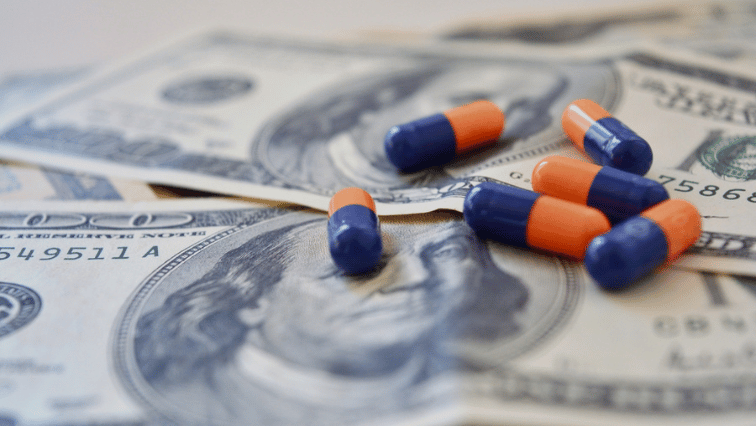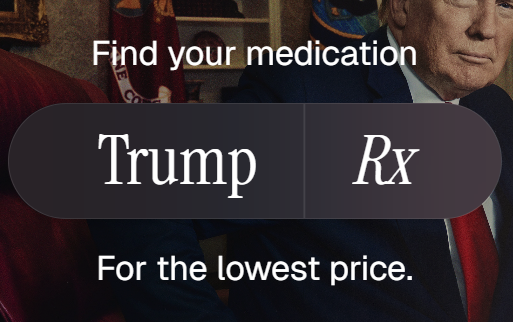The Administration has reportedly signed today voluntary deals with Eli Lilly and Novo Nordisk to lower the prices of their weight loss drugs and expand access to them. In today’s announcement, injectable GLP-1 products would be capped for Medicare beneficiaries for $245 for a month’s supply for a co-pay of just $50 per month and available on TrumpRx that is scheduled to go live in January. Oral GLP-1s will also be sold through the same avenues at $149 per month. Medicare is legally prohibited from covering obesity medications, though it can cover GLP-1s indicated for heart conditions. The Administration has not indicated how the federal program would be able to cover the GLP-1 drugs that are currently indicated solely for diabetes and obesity. But they have specified that these prices are separate from the Medicare Drug Price Negotiation Program. Novo Nordisk’s well-known GLP-1 Ozempic was chosen for Medicare negotiation at the start of this year.
These Eli Lilly and Novo Nordisk negotiated deals add to the voluntary agreements with Pfizer, AstraZeneca and Merck’s EMD Serono for IVF drugs. The agreements, although not publicly released, appear to consist of Rx price discounting, new telemarketing discount Rx platforms, greater Medicare access, and reshoring drug manufacturing to the US – in return for no Rx tariffs for at least three years.
As noted previously, these voluntary tariff waivers or “most favored nation” (MFN) negotiations by Administration are a result of both strong policies being proposed through Section 232 of the Trade Expansion Act and the weaker MFN regulatory policies, sprinkled in with more random reciprocal “emergency” tariffs under the 1997 International Emergency Economic Powers Act (IEEPA). These various tariff policies and the resulting voluntary negotiations are important for healthcare marketers to keep in mind as they are effectively opening a new Rx marketing channel and will impact both pricing and public insurance access on various brand drugs, as well as new US manufacturing investments.
Meanwhile, the Supreme Court heard arguments yesterday with a majority of the justices appearing to question the president’s ability to issue the various reciprocal tariffs to “regulate imports” under IEEPA. A court loss may somewhat weaken the Administration’s hand in leveraging further voluntary agreements to reshore drug manufacturing and gain concessions in drug price discounts – but not substantially. More likely, it would defang the mercurial bilateral tariffs that have been imposed on various trading partner countries, such as Canada, Mexico, Europe, India and China.
Healthcare marketers need to know that these “reciprocal emergency” tariffs are quite separate from the “national security tariffs” proposed rulemaking for pharmaceutical manufacturing and API resourcing. In fact, there is currently very solid law and several precedents for this action as authorized under Section 232 of the Trade Expansion Act of 1962. The Department of Commerce announced in April investigations to determine if reliance of imports for pharmaceuticals (as well as computer chips) threaten national security. If confirmed by the Commerce Department, the president can impose tariffs or other restrictions, as has been done for products like steel, aluminum, and copper. In response, 18 pharmaceutical companies have attempted to inoculate themselves from the proposed national security tariffs by collectively pledging some $420 billion in reshoring drug manufacturing to the US.
Conversely, the MFN rulemaking announced this May by the Administration appears to have relatively little current law to support new regulatory action. In fact, the Obama, first Trump and Biden Administrations all looked at implementing MFN pilot projects that were subsequently either withdrawn by internal party pressure or defeated in the courts. This hasn’t stopped the Administration from calling these “MFN voluntary agreements” in its press releases. In reality, the voluntary negotiations have sparked the growth of a new Rx marketing channel – DTC Rx selling or “pharm-to-table” platforms – offering significant Rx discounts for cash payments to be available on TrumpRx and AmericasMedicines.com, as well as individual drug company sites. These DTC selling platforms have been popularized by telemarketing compounding pharmacies over the last couple years. The extent to which any or all of these newer telemarketing DTC selling platforms will be regulated remains to be seen.
For the near term, expect the Administration to continue to pressure pharmaceutical companies to enter into these voluntary waiver agreements. Should the Supreme Court rule against the reciprocal emergency tariffs, the Commerce Department may formally move forward on its proposed national security tariffs Rx report and rulemaking – perhaps even upping the “100% pharmaceutical tariff” threat previously announced by the President. The Administration also appears to be moving forward with its MFN strategy in the form of a proposed rule, now at the Office of Management and Budget (OMB) under the title of the “Global Benchmark for Efficient Drug Pricing (GLOBE) Model” (RIN 0938-AV66). Ultimately, it appears that the Administration will try to make drug companies pay for not negotiating voluntary agreements with both the national security tariffs and the cost of fighting the proposed MNF rule in the courts.
For questions or further information, please contact Jim Potter at [email protected]




